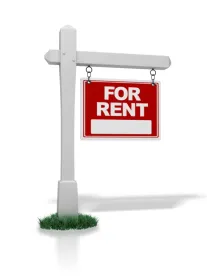Summary:
As expected, California’s legislature passed AB 1482 this month, which imposes statewide rent control, restricting the ability of landlords to terminate certain tenancies without just cause, and further restricting the ability of landlords to increase rent on an annual basis. For those properties already subject to rent control, the new law is unlikely to change much if anything, but owners of other residential rental properties should be aware of the new restrictions.
Below is a summary of the key points of the new law.
When does it apply?
AB 1482 applies to tenants that have occupied a dwelling unit for more than 12 consecutive months. If additional adult tenants are added during the lease term, it applies once the new tenant has occupied for 12 months, or one of the existing tenants has occupied the unit for 24 or more consecutive months.
What properties are exempt?
AB 1482 applies to all residential properties in California, excluding the following:
-
Housing that has been issued a certificate of occupancy within the previous 15 years.
-
Transient and tourist hotel occupancy.
-
Housing accommodations in a nonprofit hospital, religious facility, extended care facility, licensed residential care facility for the elderly or an adult residential facility.
-
Dormitories owned and operated by colleges or schools.
-
Housing accommodations in which the tenant shares bathroom or kitchen facilities with the owner who maintains their principal residence at the residential real property.
-
Single-family owner-occupied residences, as long as the owner does not lease more than 2 units (including ADUs).
-
A duplex in which the owner occupied one of the units as the owner’s principal place of residence at the beginning of the tenancy, so long as the owner continues in occupancy.
-
Residential real property that is alienable separate from the title to any other dwelling unit, provided the owner is not a REIT, corporation or limited liability company in which at least one member is a corporation, and further subject to certain tenant notice requirements.
What are the limitations on increasing rent?
The bill restricts the owner of residential real property from increasing rent during any 12-month period by more than the lesser of (i) 5% plus a cost of living adjustment based on the California CPI, or (ii) 10%. The percentage increase in any 12-month period is based on the lowest applicable rate during the preceding 12-month period, but the value of any rent discounts, incentives or other concessions made by the landlord are not taken into account when determining the lowest rate in effect during such period.
When can a landlord terminate a lease?
A landlord can terminate the lease for at-fault just cause for (i) defaults in the payment of rent, (ii) a material breach of the lease, (iii) nuisance uses, (iv) illegal or criminal activities, (v) committing waste, (vi) refusal by the tenant to sign a lease extension, (vii) refusal by the tenant to allow owner entry as required by law, (viii) assignment or subletting in violation of the lease, (ix) failure to vacate after signing a vacation agreement, or (x) failure to vacate upon termination of employment.
A landlord can also terminate for no-fault just cause if (i) the owner or certain family members intend to occupy the property (for leases entered into after July 1, 2020 other requirements must be satisfied), (ii) the property is withdrawn from the rental market, (iii) the owner is required by law to vacate the property (and if the tenant was the cause, the tenant will not be entitled to relocation assistance), or (iv) the owner intends to demolish or substantially remodel the property.
For any no-fault just cause termination, the landlord must provide the tenant with relocation assistance by either paying the tenant an amount equal to one month’s rent or waiving in writing the final month’s rent before the same is due. A landlord’s failure to strictly comply with the provisions relating to a no fault just cause termination renders the termination void.





 />i
/>i

